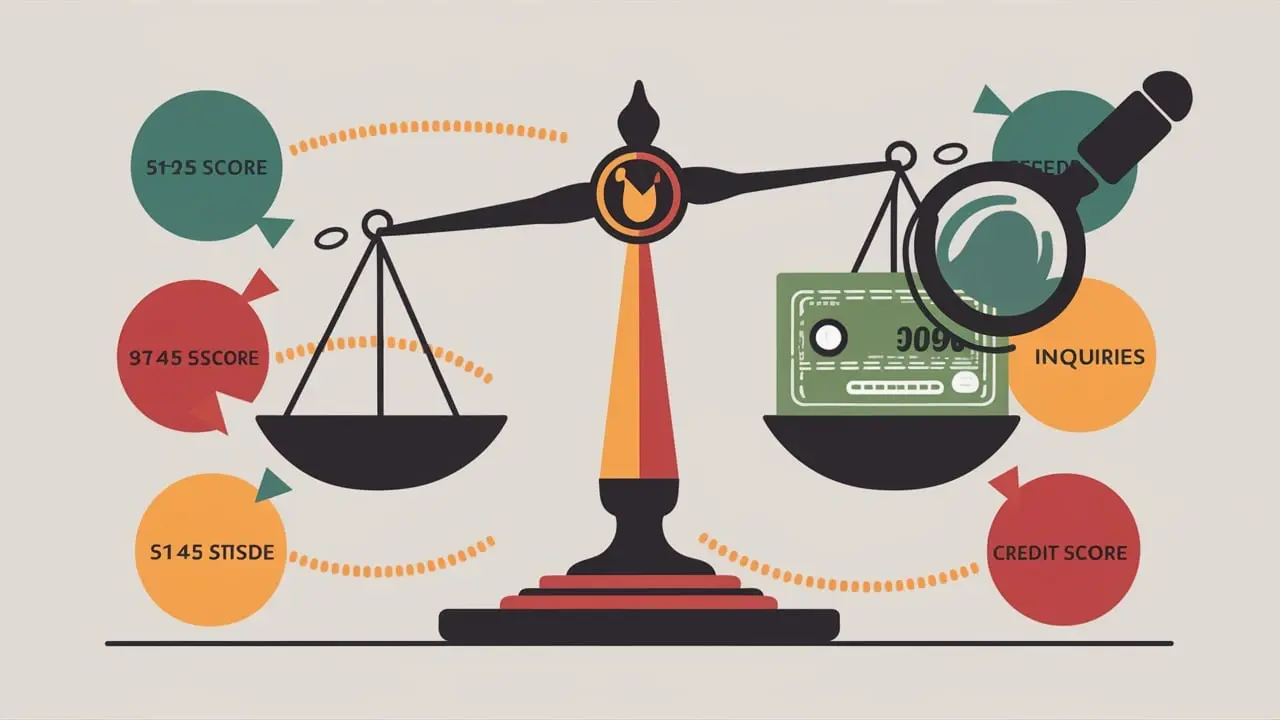-
Posted on: 23 Aug 2024

-
Another important aspect you need to know is that credit scores are the primary determinants that lenders use when considering your credit application. It gives an overview of your credit standing and helps give an idea to lenders of how likely you are to repay credit. The moment you apply for a new credit product like a credit card, auto loan, or mortgage, the credit reporting agency will be requested by the lender to provide your credit report, including your credit score and other credit information, before extending credit to you. These credit checks are referred to as ‘hard searches’ or ‘hard pulls’ and hurt the credit score.
There are a few reasons why credit inquiries cause your score to drop:
-
Getting a New Credit Increases the Risk Level
Every inquiry to the credit reporting agencies suggests that you are applying for new credit and this puts you on a higher risk bracket as far as the credit lenders are concerned. From their point of view, applying for a new credit lines within a short span may be perceived as sign of distress or over indebtedness. Just applying for an account puts you in a higher risk category than having all of them opened.
-
Could Signal Larger Debt Load in the Coming Period
Lenders understand that while you may not be ‘over your neck’ now, in the near future if more loans are taken, it would mean a higher utilization and thereby a higher debt ratio. This added risk means they may need to lend money at a higher interest rate to compensate. A lower score enables them to achieve.
-
Deficient Self-Control, Particularly in Matters Related to Credit
Taking a loan also often can also be a sign of impulsiveness, and an indication that you may borrow without thinking or reflecting whether you actually need a product, or whether you will be able to manage your expenditure wisely . Lenders like to see that you are only going to be approaching them for financing when necessary.
- Shortens Your Credit History
Also,, multiple inquiries within a short period push down the average age of your credit history, which is a factor that is used in FICO credit score calculation and it contributes 15% of the total score. You would rather have long and healthy credit records of course.
How Many Points Do Inquiries Drop Your Credit Score?
As a rule, a single credit inquiry reduces an individual’s FICO score by less than five points.
However, the impact expands with additional inquiries:
1 Inquiry: 2-5 points drop 2 Inquiries: Five to ten point drop 3-4 Inquiries: A decrease of 10-20 points 5+ Inquiries: 20+ point drop
This damage is even more if one has a poor thin credit file or limited credit history as well. In other words, your score deteriorates more when you have fewer credit accounts reporting payment activities to the bureaus.
The inquiries will remain on your credit score as long as no further requests have been made in the following year. Maintaining utilization below 20-30%, paying all the bills on time in the future, will also reduce the impact of inquiries.
For how long do credit inquiries affect your scores?
Here is the general timeline for how long credit inquiries will negatively influence your FICO and VantageScore credit scores:
-
Within 0-30 Days: None as yet
In the case where a lender is reviewing your credit, the activity does not instantly impact your credit score. Credit scores normally take 30 days before being reported to the credit bureaus and included in the computation. This is a grace period of about 14 – 45 days during which you can rate shop for different lenders within the same category without having inquiries on your reports. However, if all requests happen within the same 30-day period, the major credit reporting agencies will consider it one inquiry.
-
1-12 Months: High Impact Period
The greatest effects of credit inquiry are expected to manifest within one to twelve months after the request. During such a period, a new credit inquiry could trigger a reduction of an excellent FICO score by at least five points or more. The maximum amount of ding occurs at around six months, and then it tends to decline gradually.
- 12+ Months: Inquiries Reduce Reports
In terms of credit inquiries, FICO scoring models remove them from your credit report after one year but account histories, might consider them for up to two years. Basically, many VantageScore versions also disregard inquiries after one year too. Since the inquiry does not show on your real credit report, then you do not take a direct blow on your score.
That sums up the most important points on why credit inquiries lower your scores for a short period. When applying for new financing, try to be selective and avoid requesting credit whenever it is not necessary to preserve your scores. However, when you check your reports, it does not pull hard inquiries, so it is advisable to check your credit report as a responsible borrower.
Get fast and reliable credit repair—call (888) 803-7889 to get started!
-











